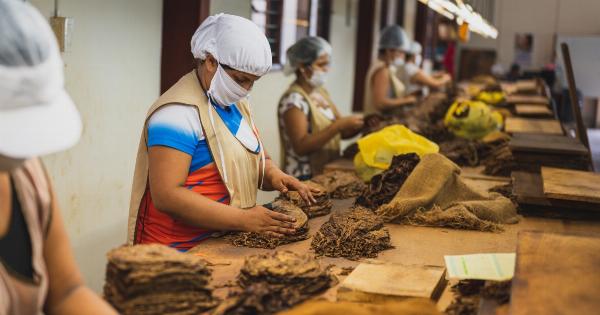Collagen is an essential protein in our skin that provides strength, elasticity, and firmness. It is responsible for maintaining the youthful appearance of our skin.
As we age, the production of collagen decreases, resulting in the appearance of fine lines, wrinkles, and sagging skin. However, there are various ways to boost and increase our skin’s collagen store naturally. In this article, we will discuss ten effective ways to enhance collagen production in the skin.
1. Consume Foods Rich in Vitamin C
Vitamin C is vital for collagen synthesis as it helps in the production of amino acids that form collagen fibers.
Including foods such as citrus fruits, strawberries, kiwi, bell peppers, and dark leafy greens in your diet can help increase your skin’s collagen production. Vitamin C also acts as an antioxidant, protecting the existing collagen from damage.
2. Incorporate Collagen-Boosting Foods in Your Diet
Certain foods are known to stimulate collagen production in the skin. Adding collagen-rich foods like bone broth, fish, lean meats, eggs, and beans to your diet can provide the necessary building blocks for collagen synthesis.
Additionally, foods high in antioxidants, such as berries, tomatoes, and dark chocolate, can also support collagen production by reducing oxidative stress.
3. Stay Hydrated
Ensuring adequate hydration is essential for maintaining healthy skin and boosting collagen production. When our bodies are dehydrated, our skin becomes dry and brittle, leading to decreased collagen production.
Drinking enough water throughout the day keeps our skin supple and helps in the formation of collagen fibers.
4. Protect Your Skin from Sun Damage
Excessive sun exposure can cause damage to the collagen fibers in our skin, leading to premature aging signs such as wrinkles, fine lines, and sagging.
Using a broad-spectrum sunscreen with a high SPF, wearing protective clothing, and seeking shade during peak sun hours can help protect the existing collagen and prevent its breakdown.
5. Quit Smoking
Smoking has a detrimental effect on collagen production in the skin. It reduces blood flow and impairs the delivery of vital nutrients to the skin cells.
Smoking also releases harmful free radicals that break down collagen fibers, resulting in premature aging. Quitting smoking not only improves overall health but also helps in preserving collagen levels in the skin.
6. Exercise Regularly
Regular exercise offers numerous benefits for our overall health, including the promotion of collagen production. Exercise increases blood flow and oxygen delivery to the skin, stimulating collagen synthesis.
Engaging in activities like cardio exercises, strength training, and yoga can improve collagen production, leading to healthier and firmer skin.
7. Get Sufficient Sleep
Adequate sleep plays a crucial role in maintaining optimal collagen levels in the skin. During sleep, the body repairs and rejuvenates itself, including the production of collagen.
Lack of sleep can disrupt this process, leading to decreased collagen synthesis. Aim for 7-9 hours of quality sleep each night to support optimal collagen production and overall skin health.
8. Use Retinoids
Retinoids are derivatives of Vitamin A and are known for their ability to boost collagen production.
Regular use of retinoid-based creams or serums can help reduce the appearance of wrinkles and fine lines while promoting the production of new collagen fibers. However, it is essential to follow the instructions and consult a dermatologist before incorporating retinoids into your skincare routine.
9. Try Collagen-Boosting Supplements
Collagen supplements, such as hydrolyzed collagen or collagen peptides, have gained popularity in recent years.
These supplements contain amino acids and peptides that can be easily absorbed by the body, providing the necessary building blocks for collagen synthesis. While research on their effectiveness is still ongoing, some studies suggest that collagen supplements may improve skin elasticity and hydration.
10. Practice Facial Massage and Use Skincare Products
Regular facial massage can increase blood circulation, stimulate collagen production, and promote healthier-looking skin. Gently massaging your face in upward strokes with clean hands or using a facial roller can enhance collagen synthesis.
Additionally, incorporating skincare products containing collagen-boosting ingredients like peptides, hyaluronic acid, and vitamin C can help improve collagen levels in the skin.
Conclusion
Collagen is a vital component for maintaining youthful and healthy skin. By following the above-mentioned ways, you can enhance collagen synthesis in your skin naturally.
Remember to incorporate collagen-boosting foods in your diet, protect your skin from sun damage, stay hydrated, and practice good skincare habits. By taking care of your skin and adopting a collagen-friendly lifestyle, you can support your skin’s collagen store and enjoy a more youthful and vibrant complexion.




























